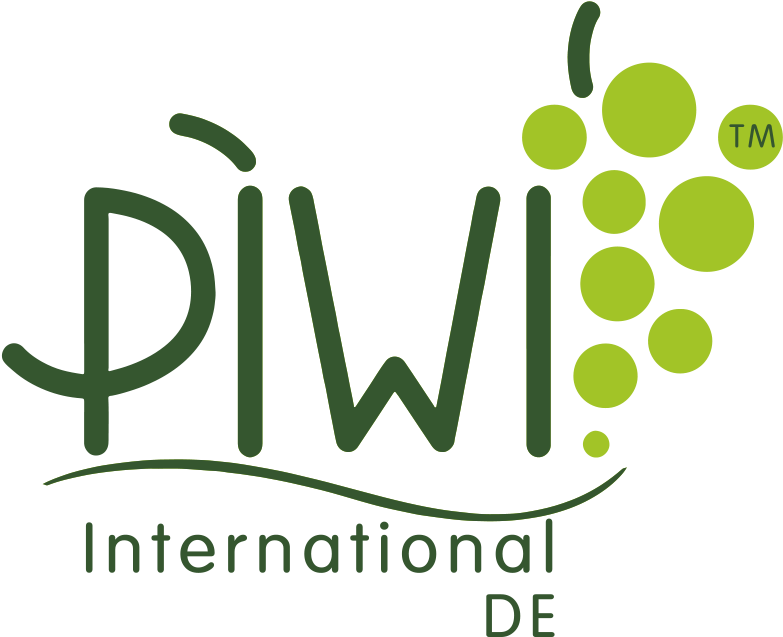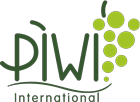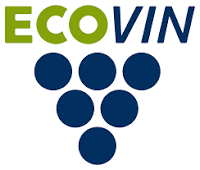The PIWI Germany association
Executive Board
- Andreas Dilger, 1st Chairman, Freiburg, Baden, www.weingut-andreas-dilger.de
- Dr. Cornelia Wobar, 2nd Chairwoman, Großräschen, Brandenburg, www.weinbauwobar.de
- Dr. Wolfgang Patzwahl, Treasurer, Sulzfeld am Main, Bavaria www.btw.patzwahl.de
- Christian Seybold, Lauffen, Württemberg, www.weingut-seybold.de
- Andreas Stutz, Heilbronn, Württemberg, www.weingut-stutz.de
- Achim Dettweiler, Wintersheim, Rheinhessen, www.theos-weinundgut.de
- Günter Schnaus, Schwabenheim, Rheinhessen,
guenter.schnaus(a)piwi-deutschland.de - Anja Sistonen, Selters, Rhineland Palatinate,
headquarters of the association PIWI Germany registered association
Andreas Dilger, Urachstrasse 3, 79102 Freiburg i.Br.
E-mail: kontakt@piwi-deutschland.de
Articles of Association

Become a Member
Membership application download, fill in, print, sign and send kontakt@piwi-deutschland.de send
Important appointments:
-
Cooperation with wein.plus - benefit as a member of PIWI Germany.
There is a cooperation between PIWI International and wein.plus that aims to promote the association and its members on wein.plus. In this webinar, which lasts no more than 10 minutes, Utz Graafmann will show how you as a winery can benefit from this.
To registration - Members’ trip to Rattey Castle and Poland – 10 – 12 August 2024
Registration for the program is via: office@piwi-international.org -
You can find all other dates from PIWI DE and PIWI International in our Calendar
Our partners:
Latest News
PIWI areas in Germany
Text: Barbara Richter (M.Sc.), Andreas Stutz, Sabrina Stutz – Source: German winegrowing 9/2024
PIWIS – How the vineyards of the individual varieties have developed.
In Germany, a total of 1,135 hectares were planted with the top 10 white PIWI grape varieties and 1,790 hectares with the top 10 red PIWI grape varieties in 2022. This makes a total area of 2,925 hectares of the top 10 white and red varieties and corresponds to a share of 2.8 percent of the total German vineyard area of 103,391 hectares in 2022.
Vision Mosel – a new PIWI movement...
Our vision…
We are an association of wine-growing companies from the Moselle that are involved in the cultivation and development of new, robust grape varieties.
We want to exploit the potential of the new, robust grape varieties. The exchange of experiences with colleagues is therefore very important to us. Learn to taste and experience together. This is the future.
You can find all Vision Mosel dates at https://www.vision-mosel.de/veranstaltungen/
The top 10 among the PIWIs – area development in detail
Source: Der Badischer Winzer, December 2023/January 2024 edition
How much does the proportion of areas on which fungus-resistant grape varieties are cultivated grow when comparing varieties and regions? Board members of the PIWI Germany association determined the data.
A selection of white and red PIWI grape varieties was examined in more detail in several articles that appeared in the specialist magazine der deutsche weinbau. This included, among other things, the characteristics of the individual grape varieties, resistance, information on suitability for cultivation and the origin of the crosses. The following article focuses on the development of vineyard areas planted with PIWIs in Germany. White:
Cabernet Blanc, Souvignier Gris, Sauvignac, Muscaris, Sauvitage, Calardis Blanc, Hibernal and Saphira. Red: Regent, Cabernet Cortis, Pinotin, Satin Noir, Cabertin, Prior and We 94-26-37. The grape varieties were bred by different research institutes or vine breeders and showed varying levels of resistance to oidium, downy mildew, botrytis, cherry vinegar fly, stem rot and frost.
NOTE: UNFORTUNATELY, THERE IS AN ERROR IN THE DATA, ESPECIALLY FROM 2022. THE AUTHORS ARE WORKING ON CORRECTING THE PUBLISHED DATA.
- The top 10 among the PIWIs – area development in detail
Source: Der Badischer Winzer, December 2023/January 2024 edition
How much does the proportion of areas on which fungus-resistant grape varieties are cultivated grow when comparing varieties and regions? Board members of the PIWI Germany association determined the data.
World of flavors at PIWIs
SENSORIK Aroma profiles of wines made from PIWI grape varieties as a marketing aid and means of increasing acceptance.
Text and illustrations: Angus Price, Prof. Dr. Gergely Szolnoki and M.Sc. Barbara Richter, Geisenheim University
Source: the german wine industry 21/2023
Wine, a symbol of sophistication, has always reflected the rich heritage of a cultural landscape dating back thousands of years and the specific environment of its origin. However, wine producers, like many other industries, face a variety of modern challenges, ranging from climate changes to evolving consumer preferences. At the center of this dynamic development are grape varieties that define the sensory properties and quality of wines. The wine-growing country of Germany is currently experiencing an increased willingness to plant PIWI grape varieties on the part of winegrowers.
This article delves deeper into the driving factors for growing PIWI grape varieties, highlights the variety-specific aromatic expressions, and examines the crucial role of aroma wheels in overcoming the communication gap between producers and consumers. By linking research with sensory science, this article aims to highlight the potential of PIWI grapes and their upcoming importance in the German wine industry.
Development of PIWI vineyards in Germany
PIWIS – current status of the vineyards and significance of the individual varieties.
Text: Barbara Richter (M.Sc.), Geisenheim University; Andreas Stutz, Sabrina Stutz
Source: the german wine industry 13/2023
Eight white PIWI grape varieties (Cabernet Blanc, Calardis Blanc, Hibernal, Muscaris, Saphira, Sauvignac, Sauvitage and Souvignier Gris) were already presented in ddw 10/2022. In ddw 24/2022, a selection of red PIWI grape varieties (Cabernet Cortis, Regent, Pinotin, Cabertin, Prior, Satin Noir and We 94-26-37) was presented with profiles. The varieties were bred by different research institutes or vine breeders and have varying levels of resistance to oidium, downy mildew, botrytis, cherry vinegar fly, stem rot and frost. The aim of this article is to present the TOP 10 white and red PIWI grape varieties and briefly discuss their development. On the one hand, the overall situation in Germany is shown, and on the other hand, the situation in the individual federal states.
DATA BASIS
Evaluating the current vineyard area of PIWIs is complex. The wine-growing files of the wine-growing regions and the data from the wine-growing authorities in the regional wine regions in the north and east of Germany were used for the statistics. We have the data for 2021 and 2022.
NOTE: UNFORTUNATELY, THERE IS AN ERROR IN THE DATA, ESPECIALLY FROM 2022. THE AUTHORS ARE WORKING ON CORRECTING THE PUBLISHED DATA.
- Development of PIWI vineyards in Germany
PIWIS – current status of the vineyards and significance of the individual varieties.
Text: Barbara Richter (M.Sc.), Geisenheim University; Andreas Stutz, Sabrina Stutz
Source: the german wine industry 13/2023
Newly approved PIWI varieties in the wine regions of Europe
In the Official Journal of the EU C 222 of June 26, 2023, a new (PIWI) variety was approved for the PDO "Champagne". The Voltis variety has been added to the existing seven main varieties. The maximum permitted grape yield is 15.5 t/ha.
A notice on the creation of the new German PGI "Großräschener See" was published in the Official Journal of the EU C 222 on 26/06/2023. The cultivated varieties are the PIWI varieties Solaris, Cabernet blanc, Johanniter and Pinotin. The PGI is located in Brandenburg on the Großräschener See, near the border with Saxony. The maximum yield is set at 90 hl/ha.
In the Official Journal of the EU C 230 of June 30, 2023, the approval of new varieties (PIWI) for the PGI "Pays d'Hérault" (near Montpellier) was granted. A total of 17 new PIWI varieties were added and 18 old varieties that are no longer used were removed. The newly approved PIWI varieties are Artaban N, Bronner B, Cabernet blanc B, Cabernet Cortis N, Floreal B, Johanniter B, Monarch N, Muscaris B, Pinotin N, Prior N, Saphira B, Sauvignac B, Solaris B, Soreli B, Souvigner gris B, Vidoc N and Voltis B. (N=Noir, B= Blanc)
Jiří Sedlo, July 18, 2023
Cooperation with wein.plus: Benefit as a member of PIWI-International!
There is a cooperation between PIWI International and wein.plus that aims to promote the association and its members on wein.plus. In this webinar, which lasts no more than 10 minutes, Utz Graafmann will show how you as a winery can benefit from this.
Tuesday, February 14, 2023 at 6 p.m. (the webinar will be recorded)
Sell wine successfully with wein.plus for wineries
Find out how you, as a winery, can maximize your wine sales, find stockists across Europe and get support in the sales process. Learn methods to increase the visibility of your winery on wein.plus and increase your sales figures. Use wein.plus to bring additional visitors to your winery or to advertise events.
Language: German
Duration: 20 minutes
Portrait of red PIWIs
... Cultivation suitability, grape variety characteristics and taste profiles of selected red PIWI grape varieties.
DEVELOPMENT OF PIWI BREEDS
Source: the german wine industry 24/2022
The first generation of PIWI vines were grown around 1900 in Colmar, among other places bred (Ambrosi, 2011). This first generation consisted of direct crossings of American/Asian wild vines and European wine grapes. Breeding goal was not only to reduce mildew control measures, but also to protect against phylloxera. As is well known, chemical plant protection and the planting of grafted vines have become established. Breeders like Kuhlmann crossed varieties like Léon Millot or Marechal Foch. During Nazism, these vines were mostly due to "non-Aryan origin" (American and Asian genetic material). forcibly cleared. After the Second World War, the vines, including in France, were used to produce brandy (Armagnac) until the 1960s. Further vineyards were cleared as a result of support programs initiated in France. Today, grape varieties of the first PIWI generation are primarily found in Switzerland, Austria and a few companies in southern Germany.
PIWI is developing into a quality mark - PIWI Wine Challenge 2022
High level at the PIWI International Wine Challenge 2022

Gone are the days when PIWI vines were grown primarily for environmental reasons. There are now many very good wines made from PIWI varieties, as well as numerous internationally committed winegrowers who can draw on a lot of experience with PIWIs both in viticulture and in winemaking and who bottle the best wines, which the PIWI International Wine Challenge 2022 has fully confirmed . Two thirds of the wines received SILVER or GOLD, even TOP GOLD. The high quality was generally confirmed by the visitors at the subsequent public tasting, for which all the wines were presented according to the blind evaluation. The PIWI mark, which PIWI members are allowed to put on the labels of their wines, can be considered something of a quality mark. And so PIWI wines bring environmental protection and enjoying good wines together and can be considered an important future of wine.
Katrin Lang visits PIWI International Wine Challenge
Source: German Wine Queen – News
26.10.2022
The PIWI International working group has launched a competition for the first time: At the PIWI International Wine Challenge 2022, a total of over 180 wines from Germany and the surrounding wine-growing nations were entered and evaluated in five categories by a specialist jury.







